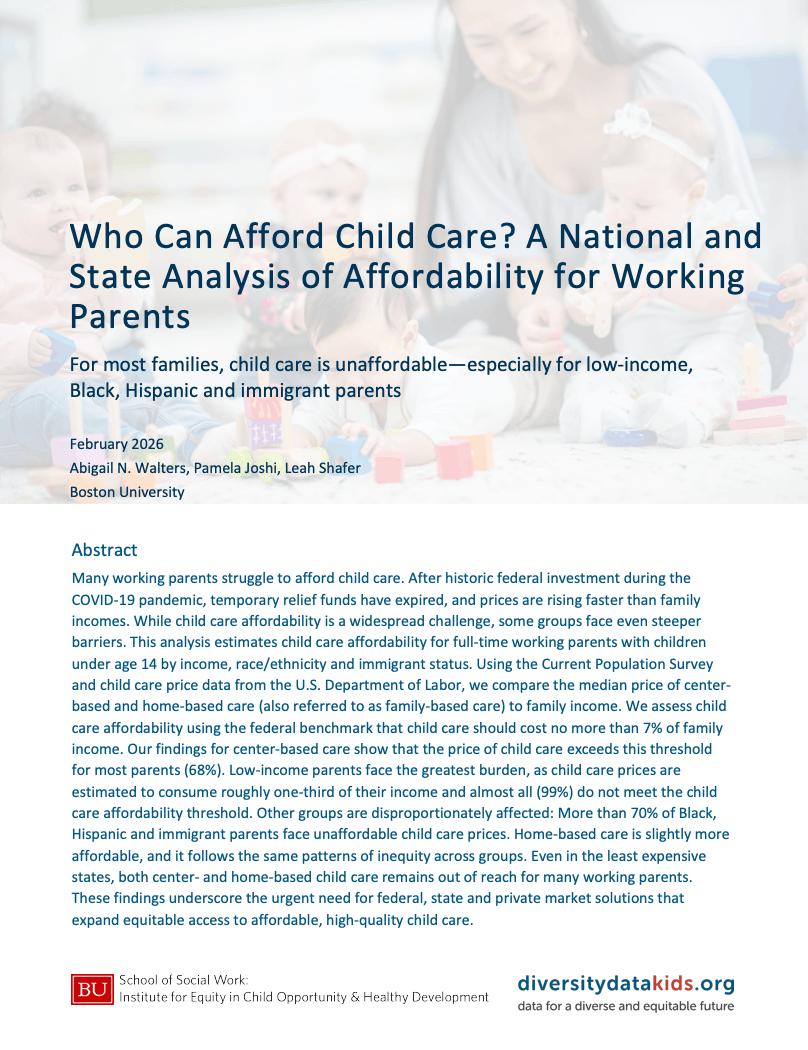Maternal and Infant Health
Maternal health is the health of women throughout pregnancy, childbirth, and the postpartum period. It encompasses a range of factors that influence well-being during these stages, including physical, emotional, social, and economic aspects. Infant health focuses on the health and well-being of newborns and infants during the period from birth to the age of one year. Key components of infant health include proper nutrition, immunizations, preventive healthcare, and a safe and supportive environment for growth and development.
Maternal and infant health contributes to the overall health of communities. Prioritizing health during and after pregnancy and childbirth, a time during which people are especially vulnerable, can result in positive health outcomes long term and determine the health of future generations. Unfortunately, the United States has the highest infant mortality rate among other high-income countries and a maternal mortality rate three times that of other high-income countries. In 2021, 1,205 U.S. women died of maternal causes, and mortality is on the rise—increasing from 23.8 per 100,000 in 2020 to 32.9 per 100,000 in 2021. Nearly 20,000 infants died in 2021 and the rate of infant mortality was 5.5 deaths per 1000 live infant births.
Lack of adequate health care in the United States leaves nearly 8 million women of reproductive age without health insurance and proper reproductive care. The COVID-19 pandemic put women at further risk of pregnancy and childbirth-related complications, contributing to 25% of maternal deaths between 2020 and 2021. The pandemic also disrupted routine care and exacerbated access to transportation, quality food, and social support. There are significant racial disparities when it comes to maternal health in the U.S.; the maternal mortality rate for Black women is double the national average and three times that of the rate among White women. Additionally, the infant mortality rate is significantly higher for Black infants at a rate of 10.6 per 1,000 live births, and Native Hawaiian/Pacific Islanders and Native Americans have the second highest infant mortality rate.
Blood loss, infection, high blood pressure, unsafe abortion, and obstructed labor are the most common causes of maternal death. Infant mortality is most commonly caused by birth defects, preterm birth, sudden infant death syndrome (SIDS), and injury. Maternal and infant health disparities are the result of broader underlying social and economic inequities rooted in racism and discrimination. Differences in health insurance coverage and access to care also play a role in driving worse maternal and infant health outcomes for people of color.
Improving maternal and infant health directly impacts the overall health, well-being, and functioning of societies. Changemakers can advocate for increased funding for maternal healthcare services, improved access to prenatal and postnatal care, and paid leave policies. Implementing evidence-based practices, like integrating pre-pregnancy health screenings into primary care, providing rural healthcare sites with necessary training and equipment, and implementing maternal safety bundles within healthcare systems to ensure the delivery of high-quality maternal and infant care. Local communities can offer group prenatal care, pregnancy medical homes, and other non-hospital-based care, such as freestanding birth centers. Local agencies can also collaborate to ensure adequate access to child care, nutritious foods, housing, and education.
Resources & Tools
In Common Newsletter: How to Use Data Frameworks to Move Quickly from Data Exploration to Community Action
Resource
Brought to you by Community Commons
Published on 01/25/2024
Interactive Summary Health Statistics for Children
Resource - Data Bank/repository
Brought to you by CDC National Center for Health Statistics
Implications For Racial Inequities in Maternal Health if Roe v Wade is Lost
Resource - Journal Article
Community-Based Models to Improve Maternal Health Outcomes and Promote Health Equity
Resource - Journal Article
Cultivating Vital Conditions For Perinatal Well-Being And A Sustained Commitment To Reproductive Justice
Resource - Journal Article
Brought to you by Health Affairs
Innovation Station Practice Summary and Implementation Guidance
Resource - Guide/handbook
Brought to you by AMCHP
Financial Instability and Delays in Access to Sexual and Reproductive Health Care Due to COVID-19
Resource - Journal Article
Brought to you by Mary Ann Liebert, Inc.
Bright Spot: North Carolina Maternity Center Breastfeeding-Friendly Designation
Resource - Model Policy
Brought to you by 100MHL
Bright Spot: Baby-Friendly Hospital Initiative (BFHI)
Resource - Model Policy
Brought to you by 100MHL
Nowhere to Go: Maternity Care Deserts Across the U.S.
Resource - Report
Brought to you by March of Dimes Foundation
Who Can Afford Child Care? A National and State Analysis of Affordability for Working Parents
Resource - Report
Brought to you by Institute for Child, Youth and Family Policy
Bright Spot: Pathways Community Hub in Summit County, Ohio
Resource - Model Policy
Brought to you by 100MHL
Bright Spot: Texas Mother-Friendly Worksite Program
Resource - Model Policy
Brought to you by 100MHL
Racial Disparities in Maternal and Infant Health: Current Status and Efforts to Address Them
Resource - Policy Brief
Racial/Ethnic Disparities in Pregnancy-Related Deaths — United States, 2007–2016
Resource - Report
Brought to you by CDC
Bearing the Burden: How racism-related stress hurts America’s black mothers and babies
Story
-
 Original
Original
Brought to you by Community Commons
Published on 10/02/2018
Premature Birth Rates Rise Again, But A Few States Are Turning Things Around
Story
Brought to you by NPR
New York City Launches Initiative to Eliminate Racial Disparities in Maternal Death
Story - Written
Brought to you by ProPublica
Childbirth In The Age Of Addiction: New Mom Worries About Maintaining Her Sobriety
Story - Written
Brought to you by NPR
Babies Kept Dying in This City. People Worked Together To Understand Why.
Story - Written
Brought to you by The Pew Charitable Trusts
Published on 10/19/2022
The U.S. Health Care System Sends Women Mixed Messages About Maternal Mental Health. Change Is Needed Now.
Story - Written
Brought to you by Fortune
Published on 01/08/2024
San Bernardino County Maternal, Child, and Adolescent Health (MCAH) Dashboard
Tool - Data/mapping Tool
Related Topics






























.jpg)










.jpg)























